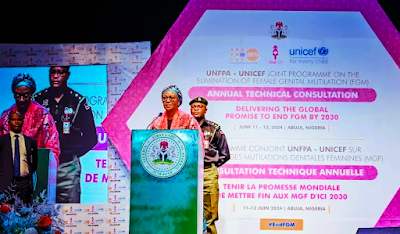What if Polish soldiers rescued a captive Syrian bear cub during WW2? What if the bear became playmate, protector, confidant and comrade in battle? Sometimes the strangest “what ifs” are true. Wojtek (pronounced Voytek) was real; you can read about him in the book “Wojtek the Bear” by Aileen Orr. The following relates how I first heard about the soldier bear:
My sister spied them from the landing
window: great coats and helmets tramping the lane, forever seeking Dad and now
his tiny daughters, for he was Polish, they were not. Boots on the stair,
blanket snatched away, barrel of a sub-machine gun; and as they squeezed the
trigger, I awoke.
I didn’t tell my parents, or run to their
room; I cradled myself in Yorkshire dark, let River Rawthey’s song wash fear away.
My sole encounters with WW2 were Dad’s army
coat, spread across my blankets, and his eagle cap badge, gracing the photo
frame between our bedroom doors. Yet I shared echoes of his post-traumatic
stress, unseen and unnamed in the 1950s. I can’t explain how Nazi uniforms stalked
my sleep, how terror at being the Hunted infiltrated my subconscious. I had no
idea Dad’s own dreams were relentless circles of escape and pursuit. It was as
if I shared shards of his memories.
Shards were all I knew in the waking world, too.
He hid WW2 from his smallest daughter, like the shrapnel in his knee, except
the story of Wojtek.
“We had a bear in the Polish Army,” Dad told me, as we drank hot milk in robust
firelight, “a big brown bear called Wojtek. His name means ‘Happy Warrior.’”
“A bear? How
did you get him?”
“He was a
little cub, and the soldiers felt sorry for him. His owners were cruel and wanted
to make him dance. So they swapped some food to get Wojtek.”
I snuggled to Dad’s heartbeat, slid sticky fingers
round our terrier Judy’s ears, as she settled
on his lap.
“What did
Wojtek do? Did he grow big?”
“Oh yes, he
grew very big. He loved to play. He wrestled with the men and drank beer. Just like naughty bears in
stories, he sometimes helped himself to jam and honey. One day he stole the
lady-soldiers’ washing, in fact he stole the line as well.”
My mind jumped
to Mum hanging out our smalls, fielding Judy’s attempts to drop her muddy ball
into the basket.
“Did he
steal... their knickers?”
“He stole
all their knickers, wrapped the line around his head!”
“Knickers on
his hea-ead, knickers on his head!”
Dad was eager
party to my giggles and squeals. Our exclusive moments of naughtiness always
felt special.
“But the
best thing,” he went on, as we recovered ourselves, “was that if a soldier felt
sad, Wojtek knew, and would go and sit beside him.”
I pictured this, fingering the shirt cuff that
often escaped Dad’s jumper, recalling Judy's interest in my grazed knees and salty
tears.
“ Like our
little Judy?”
“Like our
little Judy and lots of dogs, like lots of animals. They are all very clever,
you know. And Wojtek would have stayed in the army if...”
The sadness that sometimes lingered behind
his smile settled, and instinct shook its head at my asking more. I watched
sputtering flames spit sparks as charred logs snapped, and Dad offered Judy the
remaining milk from his cup. She lapped it up before turning her attention to
my busy fingers. Nightmares were far
away. I felt safe in my childhood world, too young to comprehend how Dad’s had
been swept away a few short years
before.
Shrapnel hid quietly in Dad's knee until he
was eighty, when it moved and he underwent surgery. Facing anaesthetic caused a
shift of memory shards too. There was no doubt Dad swore the Resistance pledge with
his whole heart, that love for Poland embroidered his being. But after he
returned from hospital, he confessed he’d saved two enemy lives. One had been a
wounded officer struggling under fire, the other, a soldier Dad encountered during his flight to
the Polish Second Corps. He was ashamed. He was afraid we too, would be ashamed
of a man who'd had compassion on his enemy.
“What was in
your mind on the battlefield?” I asked.
“I didn’t
see an enemy. All I could see was
another human being.”
“ And the soldier?”
“ He was young
like me, said he’d been taught Poles were ugly, like pigs, sub-human. He was
surprised my German was so good. I’d suggested
we stop trying to kill or capture each other, agree to let each other
go.”
I told my
father I felt no shame. I was proud, far
prouder than if he’d watched a man die in agony, or mown a boy down.
“How did the
young soldier respond?”
“He was afraid, and he agreed with me. And so I
got to the Polish Army in the end.”
“And to
Wojtek,” I added, seeking to keep him from memories so sharp, he would not
permit me to follow. “Tell me about the time he stole the ladies washing! I
want the full version – you know - how he ran off with the line on his head, how
scared the ladies were, how they softened when the men took Wojtek to meet them
afterwards.”
We laughed,
raised our glasses to Wojtek, remembering how I first heard his story over hot milk in flickering firelight.
“You never
get tired of hearing that one, do you?”
“Too right, I never do! And you can bet I never will!”
 |
| Read more about Wojtek |
.png)










.jpg)





.jpg)


